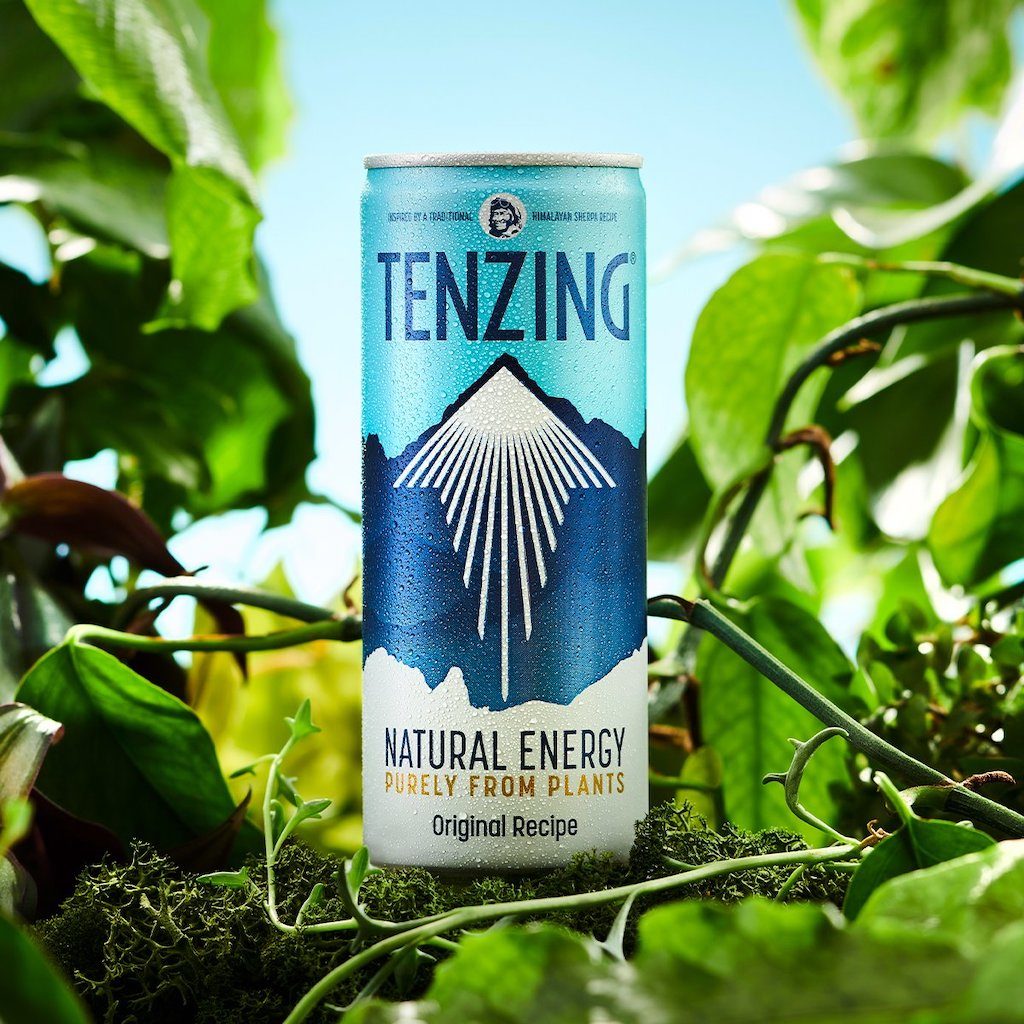3 Mins Read
British energy drink maker Tenzing has just become the first soft drink brand to introduce carbon labelling to its products. The label displays the “carbon negative” footprint of their products – meaning the company offsets more carbon than each drink emits, in a move described as a “challenge” to bigger players in the market to “do more” for sustainability.
Tenzing, the plant-based natural energy drink, will begin introducing carbon footprint labelling to its products from April this year. The company says that the new labels, which will show the firm’s moves to make its drinks “carbon negative” by offsetting more emissions than it produces, are designed to “drive further transparency” and encourage consumers to price in sustainability in their spending decisions.
It makes the British startup the first in the global soft drink industry to implement carbon labelling to their entire line-up, including their cans and cases, in a move described to “challenge the market’s big players to do more”.
“Frankly it’s quite shocking that we’re the only soft drink in the world that is carbon labelling. Our hope is other brands, especially the big players, will follow suit,” said Huib van Bockel, founder of Tenzing.

Tenzing’s drinks, which are made with 100% plant-based ingredients, natural caffeine, vitamin C and electrolytes, have completed a full life cycle assessment to analyse its carbon footprint. Working with climate impact calculator Carbon Cloud, Tenzing says that “from crop to can”, each beverage has a footprint of 0.46 kilograms of carbon dioxide equivalent per kilogram of product, while the average canned soft drink stands at 0.49 kilograms.
Our hope is other brands, especially the big players, will follow suit.
Huib van Bockel, Founder, Tenzing
Using this information, Tenzing then funds local carbon offsetting initiatives to ensure that each can of their drink emits less than what it takes to produce, making the drink officially “carbon negative”.
“Our mission is to only borrow our energy from nature and to make sure to give back more than we take,” explained van Bockel.
“People care about the ingredients they eat and drink but also the impact the brands they buy from have on the planet. For any company to manage their footprint, the first step is to understand every aspect and secondly share it with the world, only then can we tackle our carbon emissions.”
The move by the startup will no doubt please its fanbase of conscious consumers, mainly made up of millennials and Gen Zs who are seeking plant-based options and are more willing than ever before to spend on sustainable products.

“Tenzing has seen very rapid growth over the past few years,” commented the firm about the trend, noting that “much of the demand” had been driven by younger shoppers.
People care about the ingredients they eat and drink but also the impact the brands they buy from have on the planet.
Huib van Bockel, Founder, Tenzing
Other brands too have taken on carbon labelling, many of them businesses keen to showcase how their product offerings stand out in terms of sustainability, such as Upfield, the maker of plant-based dairy-free spreads like Flora and Becel, and legacy meat-free brand Quorn who have both introduced carbon labels to their products.
Even restaurants are on board, with Just Salad becoming the first U.S. restaurant chain to take the initiative, and has gone the extra mile to add more plant-based cheese options to its menu in order to encourage a shift away from carbon-intensive dairy consumption, while SaladStop won the race in Asia, showcasing how its vegan-friendly bowls tread lighter on the planet compared its meat-containing counterparts.
Lead image courtesy of Tenzing.




